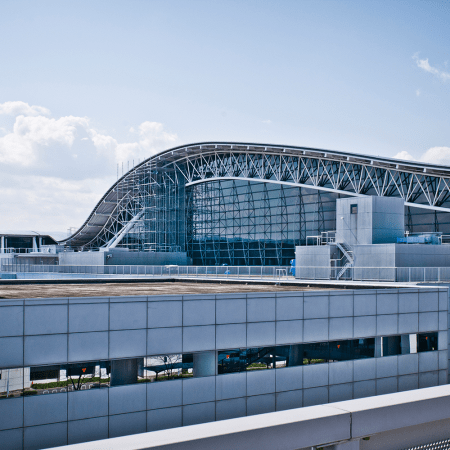Travel is a wonderful thing. It’s also spectacularly bad for the environment. Air travel alone accounts for roughly 2.5% of global carbon dioxide emissions and is trending to take up a quarter of the world’s “carbon budget” by 2050. According to the now defunct website Shame Plane, if you fly round-trip from L.A. to Paris one time, you will personally emit more greenhouse gases than one person is “allowed” in a year, per the Paris Agreement targets for climate change reduction. Now take into consideration the fact that there are people, myself included, who take such trips several times a year, a month and even a week, and things start to feel more than a little bleak.
Fortunately, the airline industry has responded (albeit slowly) by peddling carbon offsets in an effort to counteract at least some of the damage. Operators, for their part, have begun touting eco-friendly itineraries. That said, none of it means anything because — for as much as travelers purport to care about greener travel — no one’s willing to pay more for it.
Per a new survey by Germany’s motor vehicle association ADAC of 5,000 people, only 5 to 10% said they’d be willing to pay “even a moderate sustainability surcharge” for eco-friendly travel alternatives, Reuters reported. That is in spite of the 24% of respondents who claimed that those alternatives are an important criterion when booking a trip.
Is There Really Such a Thing as Sustainable Travel?
These innovative companies are using virtual tech and responsible bookings to help transform the industryThomas Fowler, the director of sustainability for Irish budget airline Ryanair, confirmed as much. “Less than 3% of our customers use [our carbon offset program],” he said.
It’s not the first time a study has yielded such results, either. Another study from early last year looked at 63,520 bookings made with a European airline between August 2019 and October 2020, and found that only 4.46% of passengers were willing to pay for carbon dioxide compensation.
“Our pre-registered study shows that the median willingness-to-pay to voluntarily offset a ton of carbon dioxide from flight-related emissions is zero, with the mean willingness-to-pay being around €1 ($1.14). Aggregated voluntary willingness-to-pay thus dramatically falls short of current prices to offset carbon dioxide, for example through the European Union Emissions Trading System,” the study noted.
The good news, if there is any to be gleaned here, is that airlines are becoming increasingly more fuel efficient all the time. That said, the rising demand for air travel mostly negates any bearing that might have on the environment. It stands to reason that charging more for carbon offsets could be beneficial in the long run, though their popularity doesn’t seem likely to increase unless there is an eventual mandate requiring passengers to purchase them.
But it’s fine. Everything is fine.
Thanks for reading InsideHook. Sign up for our daily newsletter and be in the know.



















